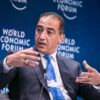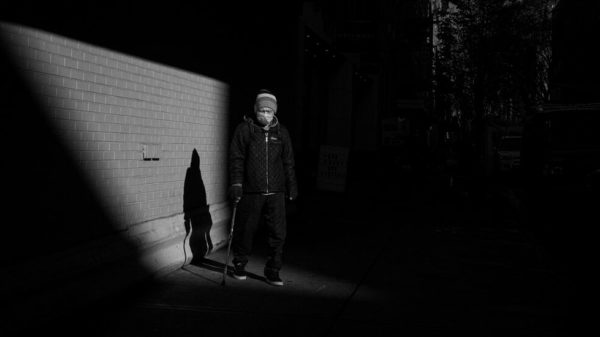“Abba, I have an idea,” says my 3-year-old. “Put on your pajamas and your big mask, turn off the light, and get into bed.”
“That sounds great,” I say, honestly. I strap on my sleep apnea mask, change into soft, worn cotton PJs and crawl under the fluffy white duvet with him. Within seconds, he is lulled to sleep by the familiar gentle wheezing of my breathing machine. He knows the sight and sound of my sleeping body well; I have Lupus, an autoimmune disease that causes chronic fatigue. On a good day, I can get by on 10 hours or so of sleep. When my condition flares, sometimes for weeks on end, I need to sleep for much of the day and night.
Before my child was born, I was afraid that my fatigue would make it impossible for me to be a good parent. And it’s true that I am often juggling parenting needs and exhaustion. What I didn’t anticipate is that prioritizing rest, sleep and dreaming is also something tangible I can offer my child.
He sees me napping every day, and he wants in. We build elaborate nests and gaze out the window together, luxuriously leaning on huge mounds of pillows. Most 3-year-olds I know fight bedtime, but we snuggle under the blankets on cold winter evenings, sighing in synchronized delight.
America in 2022 is an exhausting place to live. Pretty much everyone I know is tired. We’re tired of answering work emails after dinner. We’re tired of caring for senior family members in a crumbling elder care system, of worrying about a mass shooting at our children’s schools. We’re tired by unprocessed grief and untended-to illness and depression. We’re tired of wildfires becoming a fact of life in the West, of floods and hurricanes hitting the South and East. We’re really tired of this unending pandemic. Most of all, we are exhausted by trying to keep going as if everything is fine.
Increasing numbers of people are refusing to push through this mounting weariness: There are currently 10 million job openings in the United States, up from 6.4 million before the pandemic.
This trend is being led by young people; millions are planning to leave their jobs in the coming year. Some middle-aged people decry the laziness of today’s youth, but as a chronically sick Gen X parent, and as a rabbi who has spent much of my career tending to dying people as their lives naturally slow, I am cheering young people on in this Great Resignation.
I have seen the limits of the grind. I want my child to learn how to be lazy.
The English word “lazy” is derived from the German “laisch,” meaning weak or feeble, and the Old Norse “lesu,” meaning false or evil. Devon Price, a sociologist who studies laziness, remarks that these two origins capture the doublespeak built into the concept.
When we call people lazy (including ourselves), we are often pointing out that they’re too tired and weak to be productive, while often simultaneously accusing them of faking feebleness to get out of work for malevolent purposes. As Dr. Price puts it, “The idea that lazy people are evil fakers who deserve to suffer has been embedded in the word since the very start.”
Shunning laziness is integral to the American dream. The Puritans who colonized New England believed that laziness led to damnation. They used this theology to justify their enslavement of Black people, whose souls they claimed to have “saved” by turning them into productive laborers.
What will work and life look like after the pandemic?
-
Is the answer to a fuller life working less?
Jonathan Malesic argues that your job, or lack of one, doesn’t define your human worth. -
What do we lose when we lose the office?
William D. Cohan, a former investment banker, wonders how the next generation will learn and grow professionally. -
How can we reduce unnecessary meetings?
Priya Parker explores why structuring our time is more complicated than ever. -
You’ll probably have fewer friends after the pandemic. Is that normal?
Kate Murphy, the author of “You’re Not Listening,” asks whether your kid’s soccer teammate’s parents were really the friends you needed.
This view has endured in American culture. Hundreds of years later, working to the point of self-harm to build the boss’s wealth is still lauded as a “good work ethic” in America, and the word “lazy” is still connected to racism and injustice. It’s poor, unhoused, young, Black, brown, mentally ill, fat and chronically sick people who are most often accused of sloth. We rarely hear about lazy billionaires, no matter how much of their fortune is inherited.
For decades, I feared being labeled “lazy” because of my chronic fatigue. I pushed myself past my physical limits, all the way to severe illness, to prove my worth. Disabled activism taught me that stigmatizing rest is not just bad for my body, it’s bad for the world. The pandemic demonstrates, in a visceral way, how staying home and doing less can be a form of activism. The pandemic has also illustrated how respite is not widely available to most essential workers in this country, with tragic consequences for everybody. The lack of sick leave, family medical leave and the opportunity to work from home in essential, low-wage jobs has thrown kerosene on the viral fires of the pandemic.
Even as we look with hope toward a postpandemic future, we will still be living on a fragile, warming planet with increasing climate disruptions. It’s urgent that we find ways to work less, travel less and burn less fuel while connecting and caring for one another more. In other words, it’s critical that we un-shame laziness if we want our species to have a future. The world is on fire; rest will help to quench those flames.
Right now, as the Omicron variant spreads wildly, the Centers for Disease Control and Prevention has factored keeping people at work into their decisions on guidance, at times making it more dangerous for immunocompromised people like me to get health care or leave the house. As a high-risk person, I am painfully aware of how profits and productivity matter more to those in charge than my survival does. As Sunaura Taylor, a disabled activist, points out, our grinding economic system inevitably leads to treating disabled people as disposable, while trapping able-bodied people in dangerous, exploitative jobs. “The right not to work,” says Ms. Taylor, “is an ideal worthy of the impaired and able-bodied alike.”
Laziness is more than the absence or avoidance of work; it’s also the enjoyment of lazing in the sun, or in another’s arms. I learned through my work in hospice that moments spent enjoying the company of an old friend, savoring the smell of coffee or catching a warm breeze can make even the end of life more pleasurable. As the future becomes more tenuous, I want to teach my child to enjoy the planet right now. I want to teach him how to laze in the grass and watch the clouds without any artificially imposed sense of urgency. Many of the ways I have learned to live well in a chronically ill body — by taking the present moment slowly and gently, letting go of looking for certainty about the future, napping, dreaming, nurturing relationships and loving fiercely — are relevant for everyone living on this chronically ill planet.
To be sure, it is my privilege that allows me to teach my child to be lazy. Many people in this country and elsewhere spend all their time working, some holding multiple jobs. Many still struggle to afford housing and food. For too many, laziness is not an option.
But rest should not be a luxury; our time belongs to us and is not inherently a commodity. Reclaiming our time is an act of sovereignty over our lives, deserved by everyone. “Rest,” says the nap bishop, the Black activist Tricia Hersey, “is a radical vision for a liberated future.”
Today, my child and I are playing a game of hill. We are lying under a giant pile of every blanket in the house, pretending to be a hill studded with soft grasses. His warm breath is on my neck, skinny limbs splayed across my soft belly.
“Shh, Abba,” he says. “Hills don’t move or talk … they just lie still and grow things.”
I am teaching my child to be lazy, and so far, it’s going really well.
Elliot Kukla is a rabbi who provides spiritual care to those who are grieving, dying, ill or disabled. He is working on a book about the power of rest in a time of planetary crisis.
The Times is committed to publishing a diversity of letters to the editor. We’d like to hear what you think about this or any of our articles. Here are some tips. And here’s our email: letters@nytimes.com.
Follow The New York Times Opinion section on Facebook, Twitter (@NYTopinion) and Instagram.












